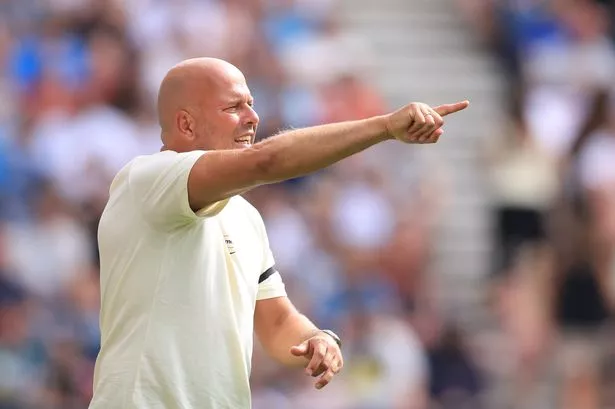As the summer transfer window approaches its crucial final month, Liverpool FC finds itself at a pivotal juncture, navigating both potential new signings and strategic player departures. The focus extends beyond just on-field talent, delving into the intricate world of football finance and its impact on the club’s long-term sustainability.
The Reds have already been proactive, securing seven new additions this summer, yet speculation persists regarding further business before the September 1 deadline. This period of intense transfer news is characterized by a dynamic interplay of incoming targets and calculated outgoing movements, all under the watchful eye of financial regulations.
One name consistently dominating the rumour mill for a potential exit is Darwin Nunez. Linked with clubs across Europe, including Napoli and Atletico Madrid, as well as the burgeoning Saudi Pro League, a £50 million valuation has been floated. Such a significant sale could offer Liverpool a crucial financial advantage, particularly in the context of stringent league regulations.
The strategic sale of a high-value asset like Nunez is not merely about recouping funds; it plays a vital role in bolstering a club’s standing with the Premier League’s Profit & Sustainability Rules, or PSR. These rules dictate financial fair play, and profits from player sales are treated distinctly, providing immediate financial leverage.
This principle was recently exemplified by the confirmed departure of Luis Diaz to Bayern Munich. The £65.5 million deal for the Colombia international generated a substantial £52.6 million profit for Liverpool FC after accounting for his remaining book value. This lucrative transaction underscores the financial acumen required to operate successfully within modern football finance.
Experts highlight that profit on player sales, unlike transfer fees paid for new acquisitions, can be booked entirely in the financial year the deal is concluded, even if the cash payment is staggered over installments. This direct boost to profitability significantly mitigates the impact of amortisation costs associated with incoming transfers, providing clubs with valuable financial flexibility under PSR.
In comparison to some of their Premier League counterparts, Liverpool maintains a robust financial position. Their amortisation costs, which stood at £114.5 million in the 2023/24 financial year, were notably lower than those of rival clubs, such as Chelsea, whose figure was approximately £90 million higher. This favorable financial health means the club operates with considerable headroom against PSR limits.
Ultimately, while strategic sales like the potential Darwin Nunez deal can undoubtedly offer a significant boost to Liverpool’s financial outlook and PSR compliance, there is no inherent obligation for the club to offload players simply to meet these rules. Even with substantial transfer outlays, Liverpool is well-positioned to potentially report a profit for the upcoming 2025/26 financial year, particularly with continued on-field success leading to lucrative knockout stage runs in competitions.





Leave a Reply